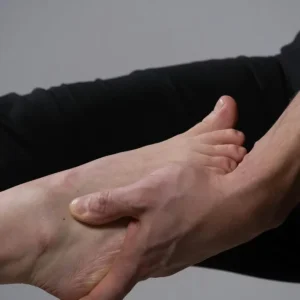
Your body is always sending out signals, though they can be easy to dismiss.
As we get older, paying attention to these cues becomes even more important, since they may point to hidden health problems. Here are eight common signs your body may be trying to alert you to something.
1. Constant Fatigue
If you feel worn out most of the time—even after a full night’s sleep—it could be more than just being busy or stressed. Conditions like thyroid disorders or sleep apnea may be to blame. If you’re often exhausted or find yourself needing naps during the day, it’s worth speaking with your doctor.
2. Shifts in Appetite
Noticing a sudden increase or decrease in how much you eat shouldn’t be brushed aside. While stress or mood changes can play a role, appetite fluctuations may also be tied to hormone issues or diabetes. Keep track of your eating patterns and consult a professional if the changes are dramatic.

3. Unexplained Weight Loss
Dropping pounds without making an effort may seem like a bonus, but it can actually be a red flag. Serious health conditions such as hyperthyroidism, diabetes, or even certain cancers can cause sudden weight loss. If this happens to you, don’t delay in reaching out for medical guidance.
4. Skin Signals
Your skin can act as a window into your overall health. New moles, ongoing dryness, or yellowing of the skin and eyes can all point to possible issues, including jaundice or other liver-related conditions.
5. Lingering Cough
A cough that doesn’t go away should be taken seriously. While it may be linked to allergies or asthma, it can also be a symptom of more serious problems like chronic obstructive pulmonary disease (COPD) or lung cancer.
6. Frequent Headaches
Recurring headaches aren’t something to ignore, especially if they grow more intense over time. They can be related to simple issues like dehydration, but also to high blood pressure or even more serious illnesses such as a brain tumor.

7. Digestive Problems
Ongoing digestive troubles—including bloating, constipation, or diarrhea—may be more than minor discomforts. They could be signs of food intolerances, irritable bowel syndrome, or other gastrointestinal conditions. Paying attention to these patterns can make a big difference.
8. Mental and Emotional Strain
Your emotional health often shows up physically. Stress, anxiety, or depression can lead to symptoms such as chest tightness, heart palpitations, or fatigue. Seeking help from a mental health professional is just as important as addressing physical symptoms.
Final Thoughts
Staying alert to unusual or persistent changes in your body is one of the best ways to protect your health. When something doesn’t feel right, don’t wait it out—consult a healthcare provider. Taking a proactive approach can make all the difference.




